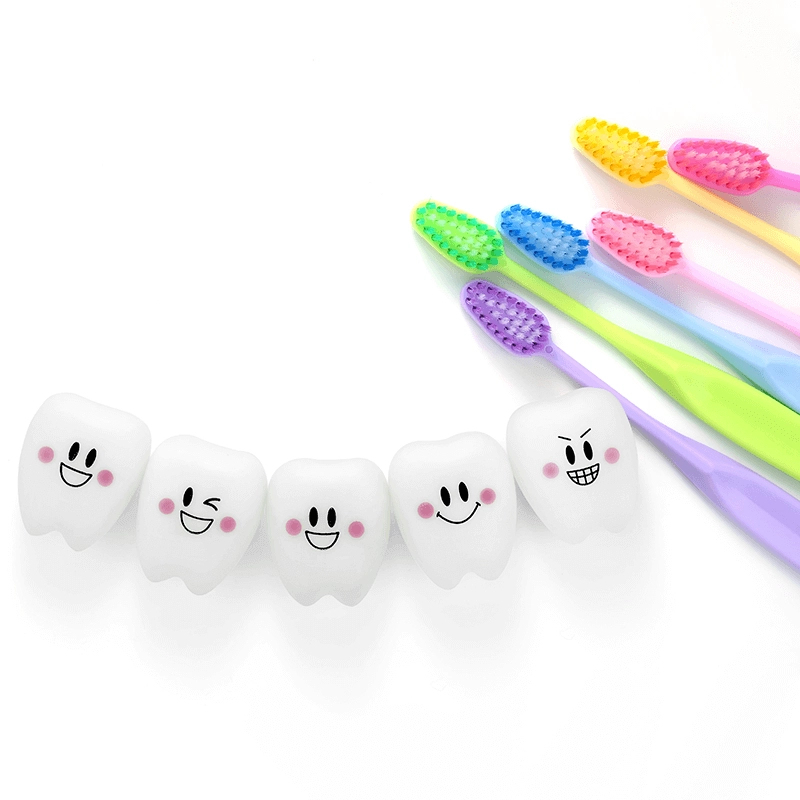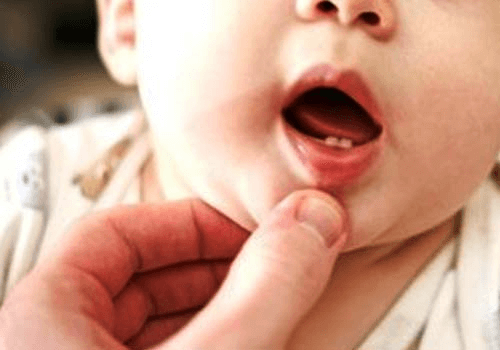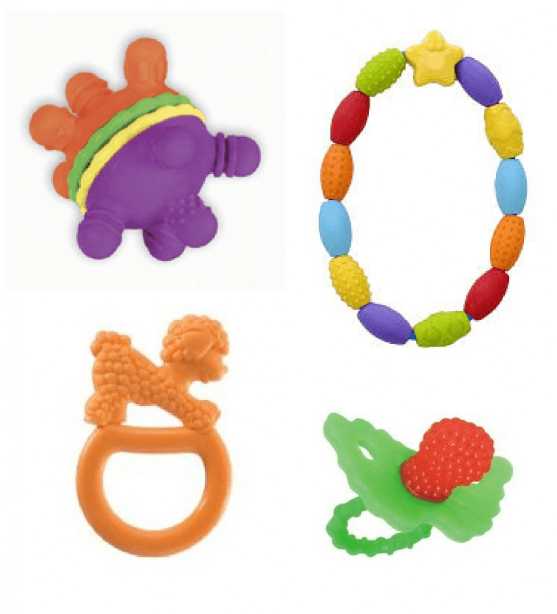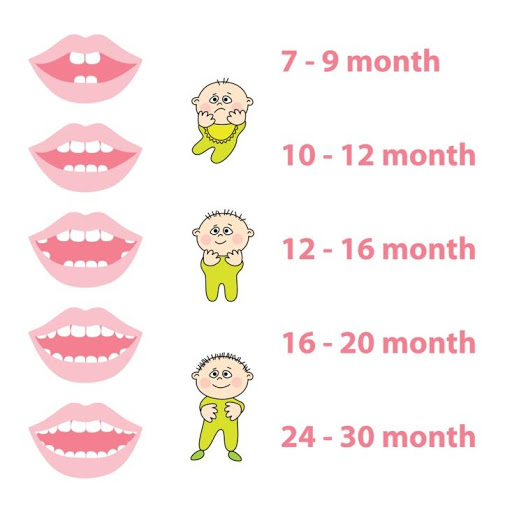Home/Wellness Zone/Sakra Blogs
31st Oct, 2018

There’s nothing more heartwarming than a baby’s toothless grin. Except maybe the smile of a baby with healthy teeth and gums. After all, just because we call them ‘baby teeth’ doesn’t mean they don’t require dental care.
All babies are actually born with a complete set of these baby or ‘milk’ teeth. These early teeth are present within the gums and start to appear when the baby is about 6 to 10 months old, sometimes earlier and sometimes later. Hence it is very important to take good care of your baby’s gums.
How to keep your baby’s gums healthy?
Gums or gum pads are generally one of the most commonly neglected areas in terms of hygiene in babies, owing to assumptions of ‘no teeth so no need to clean’. On the contrary, it’s very important to keep them clean and healthy. Wiping them with a piece of gauze or muslin cloth dipped in plain water will help in wiping away any milk or food debris stuck on to the gums. Clean gum pads and good oral hygiene right from the beginning will ensure a positive environment for the erupting teeth in a later stage.
What should you know about your baby’s first tooth?
Your baby’s first tooth can erupt anytime as early as 6-7 months or as late as 12-13 months. There is no ‘exact’ age that can be decided for the eruption of the first tooth and it will vary from one child to other.

Most often it will be the lower front teeth that will first appear in the mouth. During this period of eruption, there is a chance your child may show signs of irritation, frequent desire to bite things, putting hard objects into the mouth, redness of the gums, thumb-sucking, gum rubbing, rashes, etc. There can be loss of appetite, crying, increased salivation, drooling, irritability, wakefulness. This is normal and is referred to as teething. Give your child something cold to bite on, like a cold carrot or teething rings that are commercially available, but make sure that these toys are cleaned and sterilized before and after every use.

It is very important to keep the mouth clean at all times at this stage to prevent germs from staying in the mouth or travelling to the stomach. As soon as the first tooth erupts, you can start the brushing process. Parents should brush their child’s teeth twice a day with a soft, age-appropriate toothbrush and gentle toothpaste designed for infants and toddlers.
It would be ideal to visit a paediatric dentist at this age, as they will be able to guide you through the correct way of keeping your child’s mouth healthy. Remember that it is always better to initiate preventive procedures early on, rather than going through reparative procedures later due to neglect at this stage.
Another important thing to be aware of is that sometimes your child may be born with a tooth in the mouth or a tooth may appear within the first 2-3 months. In such a scenario, contact a pediatric dentist as soon as possible and they will guide you through the caretaking process.

7 signs that your child has a dental infection
The occurrence of cavities in children is considered a disease called EARLY CHILDHOOD CARIES. Signs and symptoms include:
1. The appearance of dark colour on the tooth (brown or black).
2. Sensitivity/pain on chewing food or eating sweet foods.
3. Severe toothache, toothache at night.
4. Swollen gums, small pus-filled swelling near the tooth on the gums.
5. Not allowing you to brush his/her teeth due to sensitivity, weakening or chipping of teeth.
6. Inability to eat, refraining from eating hard food items
7. In severe cases, fever with swelling restricts normal functions of the mouth.
Remember that a child will not be able to express discomfort like an adult; therefore it is the responsibility of the parent to carefully note for any of the above changes at an early stage and bring it to the dentist’s notice.
Decay in children is not only because of sweets or chocolate. Consistent oral hygiene measures can avoid all kinds of dental infection.
Few things you may not know about paediatric dentistry
Paediatric dentistry is a branch of dentistry that is dedicated to providing care for children from infancy to adolescence. We also cater to children with any special healthcare needs.
Paediatric dentistry aims at providing preventive oral health care, to prevent cavities from occurring in the delicate milk teeth so that your children can grow into adults with a strong permanent set of teeth.
A lot of dental problems such as malalignment of teeth can be identified at an earlier age by the paediatric dentist and can be corrected early and the future need for braces or severity of orthodontic treatment may be reduced.
Since paediatric dentists are specially trained in handling children, the type of treatment and management of the patient in the clinic is very different from adults. We understand that kids are not merely ‘small adults’ and need a special kind of care. We also understand your concern as a parent and do our best to reassure and guide parents on good oral hygiene for their child.
Enquire Now
